If you look into WordPress’s website builder, you’ll find all sorts of features at your disposal. But, with so many ways to use WordPress, you might find yourself asking “what is WordPress used for?” How do you make the most of this toolkit to create a professional site?
This blog post will share use cases and examples to help you understand why so many folks create their websites with WordPress, and why WordPress.com is a great hosting choice.
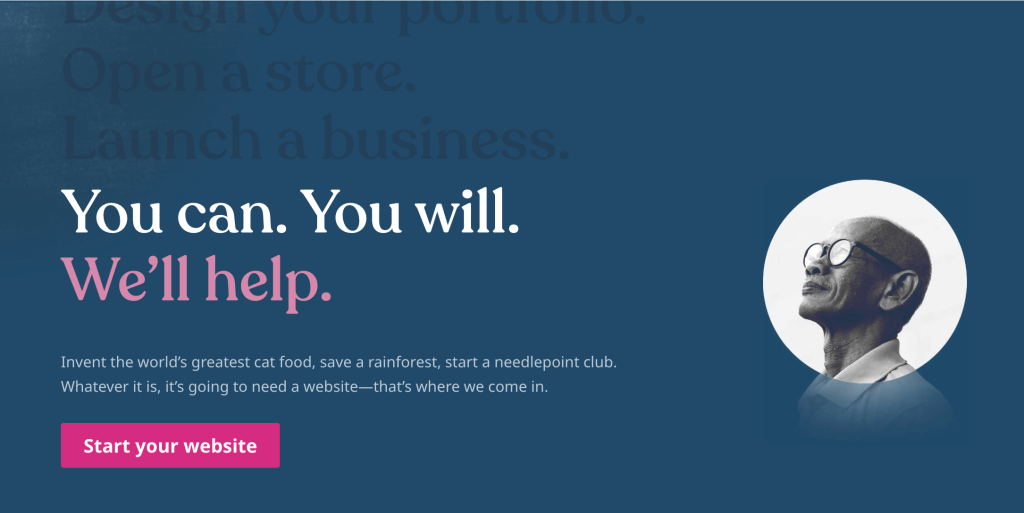
Use cases
People use WordPress to create sites for the following purposes:
Personal blogs

WordPress has its roots in personal blogging, and people across the web use it for that purpose to this day. For example, Geraldine DeRuiter, AKA The Everywhereist, writes about food, life, and travel on her WordPress blog.
Tip: Every WordPress.com site comes with extra blogging tools built in to help you start your own blog. Most hosts don’t provide these extras.
Corporate blogs

While WordPress started out with the personal blogger in mind, it has powerful enough blogging tools for businesses to take advantage of. You can easily format your blog and blog posts professionally for content worthy of a Fortune 500 company.
Speaking of Fortune 500 companies, even big names like Microsoft use WordPress for their corporate blogs. The Official Microsoft Blog shares news about the corporation’s activities in the business world.
Portfolios

Modern creatives and coders build portfolio sites to share their work on a single page. WordPress has portfolio features that let you create a portfolio page and add detailed projects to it.
Developer Ryan Cameron uses WordPress to share his portfolio of WordPress websites. You can also use WordPress’s portfolio features for creative work, such as in a writing portfolio.
Business sites
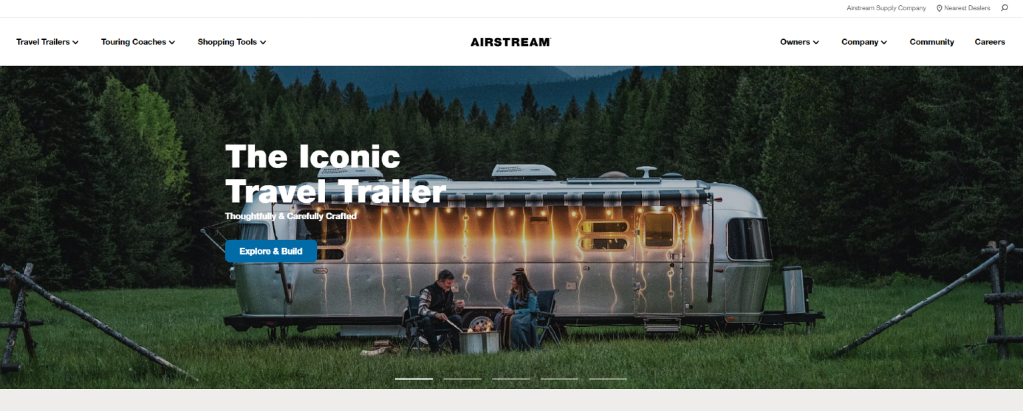
In today’s world, businesses need websites to create a home on the internet for all of their information.
Check out how Airstream, a trailer business, uses WordPress to create a virtual catalog of its products. You can browse its trailers and contact the company all from its website.
Ecommerce stores

Ecommerce stores are online stores where you can directly buy products and services. Thanks to the WooCommerce plugin, you can transform your WordPress.com website into an ecommerce store for your business.
Jetpack, the most popular security plugin developer for WordPress, sells its products on a WordPress site. It shows how ecommerce websites work when you don’t sell physical items.
Newsletters

Newsletters have two parts to them: the newsletter issues themselves and the site that hosts the information about the newsletter. You can create both in WordPress. Use your WordPress.com website to host your sign-up page, then write and publish your newsletter from your dashboard.
Tip: WordPress.com even has its own Newsletter theme. See how easy it is to create a newsletter with all the power of WordPress behind it.
The Marginalian, a blog and newsletter on finding meaning, hosts its sign-up pages and posts on a WordPress website.
Podcasts

Like newsletters, podcasts also need a virtual home where you can share all the important info about them. WordPress’s podcast player block lets you embed podcast playlists and episodes right into your website. So, you can host your podcast on the platform of your choice, then share your episodes on your WordPress site to put them in context.
WordPress’s blogging features also come in handy here. Like The Wellness Mama Podcast, you can share each of your new episodes as a blog post for easier publishing.
Link in bio pages

Social media platforms like Tiktok and Instagram don’t let users share links in posts. So, many users direct their followers to a link in bio page that shares links related to each of their posts. w.link makes it easy to create a link in bio site with WordPress.com.
I manage the social media accounts at Unwinnable, where we keep our link in bio simple. We share our Instagram posts’ pictures and link them to their relevant pages.
Landing pages

A landing page is a page a visitor ends up at when they click an email, ad, or another digital marketing asset. They’re linked directly to marketing campaigns. Tools like the Google Site Kit let you track how visitors end up on your WordPress landing page.
The Collision tech conference’s landing page shares the benefits of going to the event and leads the visitor to a newsletter sign-up — all on a WordPress site.
Video websites
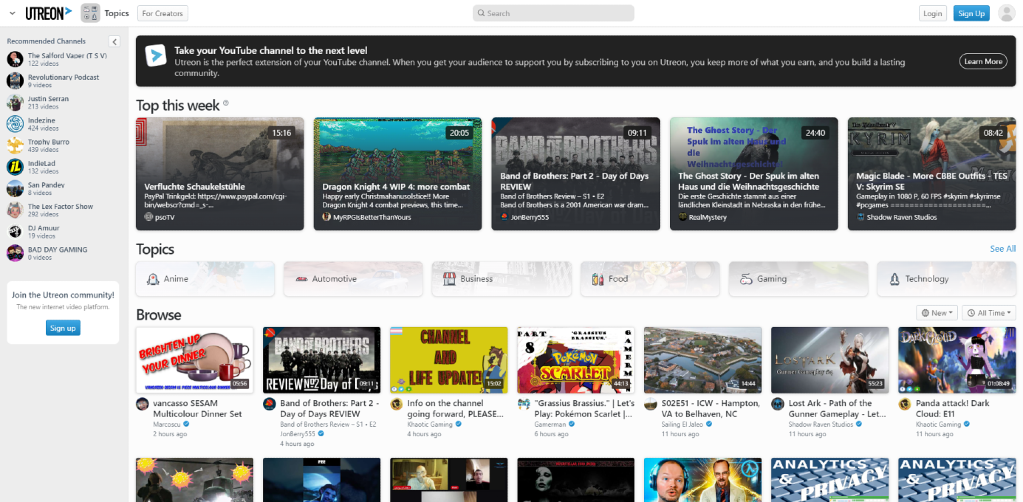
Videos explain information in ways you just can’t achieve through text or images alone. WordPress enables you to create a video website at any depth of complexity.
Get started sharing videos on your site with the video block or YouTube block. Or, you could get advanced like Utreon and use original code to create a YouTube competitor of its own.
Online publications

WordPress’s blogging features work for any situation where you want to publish content quickly and neatly, including for online publications. They enable you to publish posts from multiple authors, work with many content types, and add SEO functionality.
Well-known publications and news sites like TechCrunch count on WordPress to get information out fast and accurately.
School websites

School websites need to coordinate a lot of information for a few different audiences — current students, prospective students, and their families. Themes, blocks, and plugins help schools wrangle it all into understandable pages for everyone.
Major institutions like Georgia State University connect with students and advertise their schools with WordPress.
Community websites
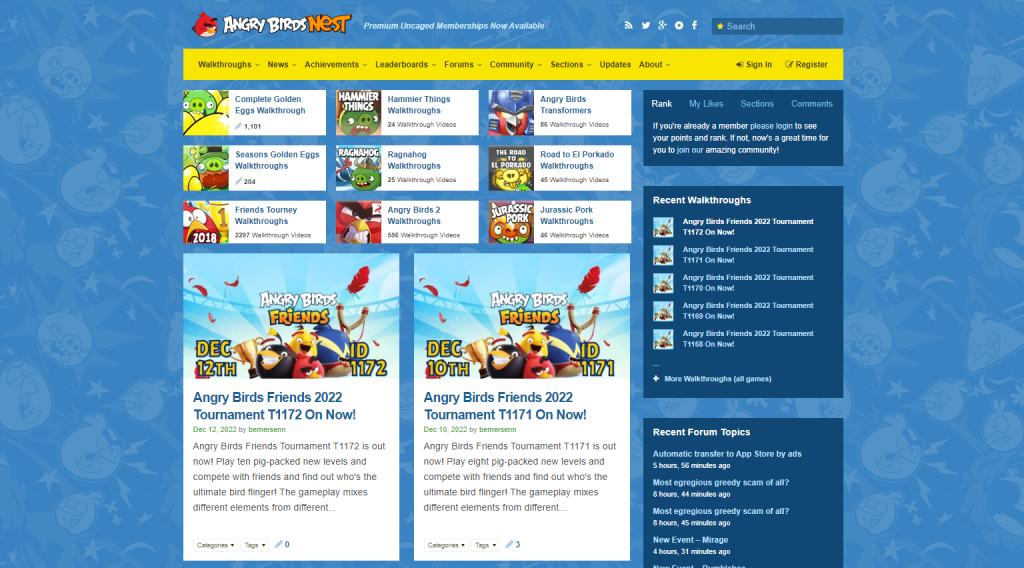
Online communities come in many forms. Generally, their members rally around a common interest or cause. WordPress offers plugins for community building like event calendars and membership systems to bring all sorts of people together.
For example, Angry Birds Nest uses WordPress to keep fans of the game up to date and give them a space to discuss strategies.
Course and education websites

If you’re looking to teach courses through your website, WordPress has the resources you need to get set up. Plugins like Sensei LMS let you run courses on your site without having to learn how to code.
You can offer your courses as part of an educational program or as a product. MPUG, for instance, offers online courses as part of its learning resources on its WordPress site.
Product review sites

When you want to buy something important, chances are you look up reviews for the type of product you need. If you want to join the sites helping buyers make good decisions, WordPress’s blocks and blog posts will help you publish reviews efficiently. Try using the ratings block to give each product an honest evaluation.
Look how One Cut Reviews shares reviews in WordPress blog posts for easy sharing.
Photography websites

WordPress can help you share pictures as effectively as it can the written word. Features like the portfolio function and gallery block give you plenty of ways to show off your photography.
Wildonline.blog uses a visual layout in its WordPress blog to make its photography the focus of its posts.
Sports websites

While they seem simple on the surface for people unfamiliar with them, sports offer tons of in-depth topics to explore through a website. You can blog about your favorite teams, share your fantasy football roster, or predict how future games will go on your WordPress site.
Scott Wolf, for example, covers University of Southern California sports on the InsideUSC site with WordPress’s blogging tools.
Government websites

Government entities also count on WordPress for website creation and hosting. WordPress comes with built-in security features and enough flexibility for extra layers of security so governments can keep their information in the right hands.
The United States White House, for example, uses WordPress to keep citizens informed of its policies and activities.
Who uses WordPress?
Just about every kind of site owner you can think of uses WordPress for their website, including:
Bloggers

As WordPress’s original audience, bloggers depend on it for their content, including people who started blogging decades ago. While you can combine the platform’s blogging features with other tools, WordPress also works well when you just need the blogging functions.
Actor and writer Wil Wheaton started blogging in 2001, and he now runs his long-lived blog on WordPress.
Small businesses
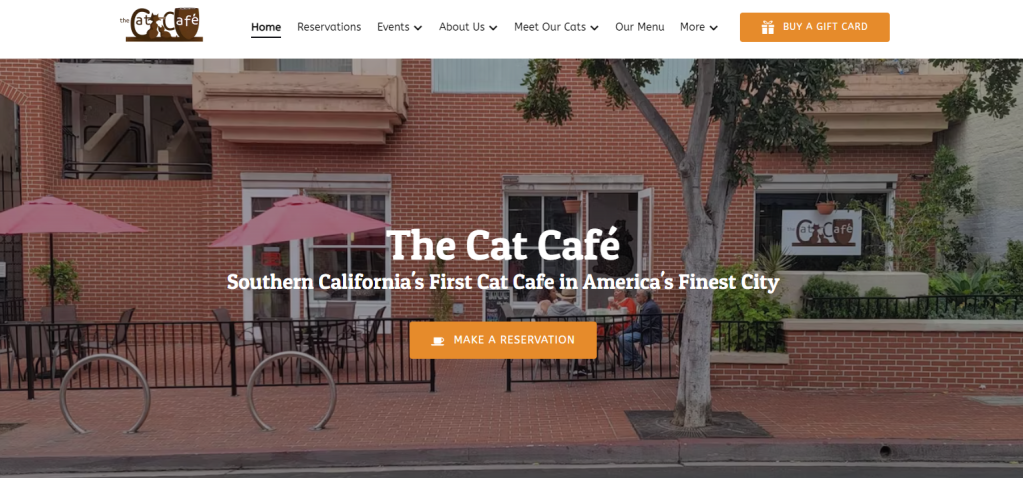
WordPress’s flexibility in features and pricing makes it ideal for small businesses looking to scale in the future. You can start with a free or low-cost plan, then bump it up as your business grows.
The Cat Cafe, Southern California’s first cat cafe, gives its business an online home with WordPress.
Nonprofits

Nonprofits can also take advantage of WordPress’s versatility to scale it with their organizations. WordPress’s plugin library includes options for nonprofits that help you manage donations and memberships.
Activist organizations like the long-established Center for Reproductive Rights run their websites on WordPress.
Freelancers

Freelancers of all specialties depend on WordPress’s range of hosting options and portfolio features to advertise their services. Whatever craft you sell, you can spread the word about it on WordPress.
Look how Sonia Weiser shares her clips and newsletter for freelancers with a free WordPress website.
Store owners

WordPress offers store owners the tools they need to promote their online and brick-and-mortar stores. Use WooCommerce to sell products online and blocks like the map block to direct customers to your real-life stores.
The Saucy Milliner has both an online store and an in-person atelier, and WordPress lets it share both on its website.
Affiliates

Business owners and side hustlers take part in affiliate marketing programs to earn money through affiliated links. Blog posts created with WordPress are a great vehicle for your affiliate links.
You can also run an affiliate program of your own with your WordPress site. Big names like Rakuten Advertising do it.
Writers

Authors create websites in WordPress to share updates about their work, advertise their books, and communicate with their communities. WordPress gives you space to promote your full bibliography if you so choose.
Julie Orringer’s WordPress site, for example, has dedicated web pages for each of her books featuring all the relevant info you need.
Artists
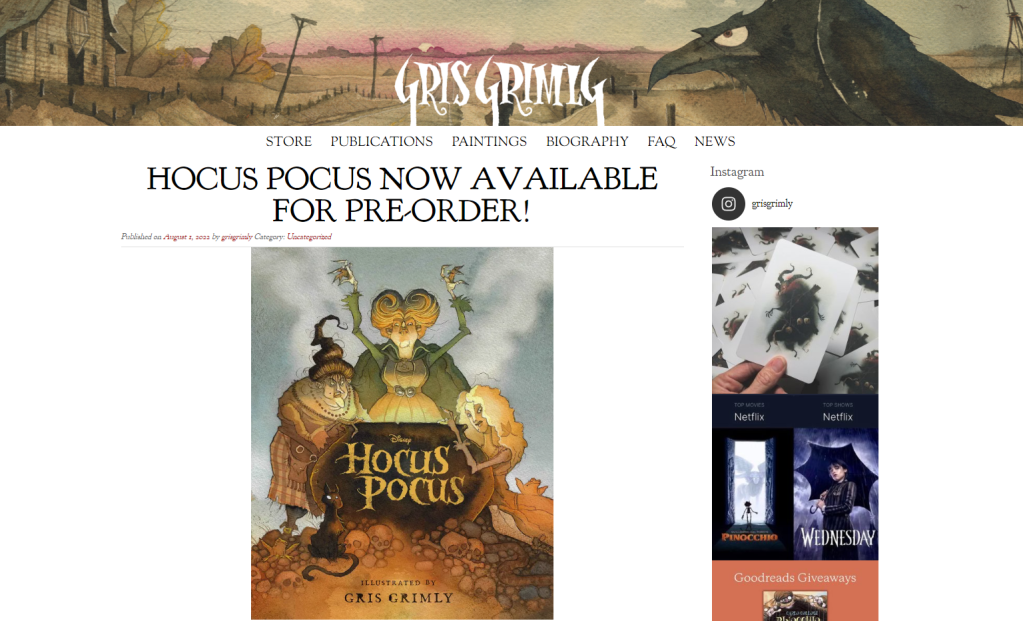
WordPress’s portfolio features, gallery block, and ecommerce plugins enable artists to promote and sell their work however they need.
Look how Gris Grimly shares art updates using WordPress’s blogging tools and sells art directly on his site with its ecommerce features.
Musicians

Musicians can also leverage WordPress’s tools to share their music and promote their tours. Insert music in your favorite format into your pages with the audio block, and advertise your tour dates with an event plugin.
For example, Nick Cave covers every aspect of his music career on his WordPress site.
Consultants

Consultants in all professions can count on WordPress’s blogging and portfolio features to show off their authority in their subject.
Check out how public relations consultant Michelle Garrett uses testimonials, blog posts, and sharp copy to advertise her services on her WordPress website.
Service-based entrepreneurs

Business owners who sell services rely on WordPress’s flexible tools to spread the word about their offerings.
For instance, interior designer Sona Mantri shows off her work on a one-page WordPress site.
Software companies
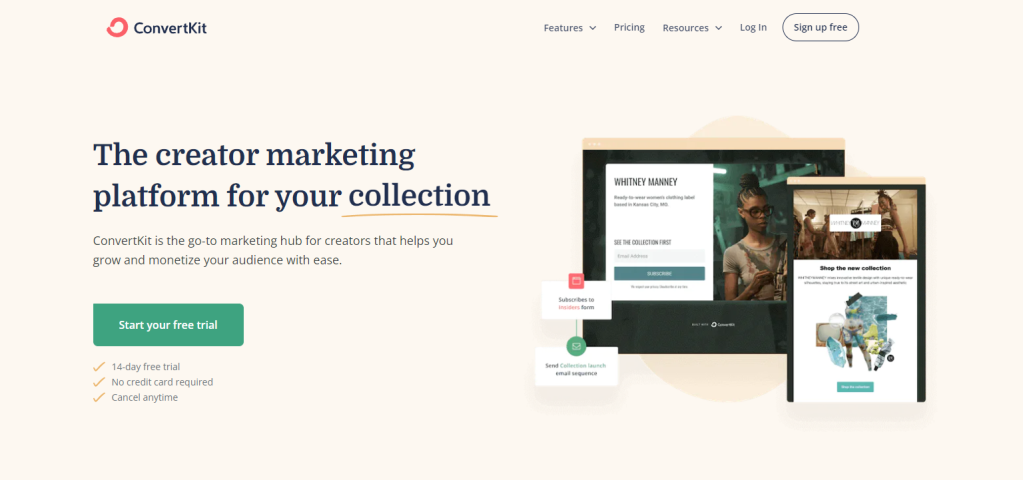
Software companies, including software as a service (SaaS) businesses, inform visitors about their features and pricing with WordPress websites. With content marketing becoming especially popular in software, WordPress’s blogging tools are indispensable for software marketers.
Marketing software ConvertKit, for example, manages its website and blog with WordPress.
Major brands

Most of the examples you’ve seen so far relate to small-to-medium businesses and creators. But, major brands also build their websites with WordPress, including Spotify, TED, and Time.
If you want to see an example in action, Sony Music also relies on WordPress.
Butchers, bakers, and candlestick makers

Any professional under the sun can make a website in WordPress to their liking, thanks to the vast selection of tools available to them. If you can think of something a person can do, chances are someone has a WordPress site about it.
If you came here looking for an actual butcher, baker, or candlestick maker, by the way, Velvet Sky Bakery has a good example of a bakery WordPress website.
Why use WordPress.com instead of competitors?
At this point, you know that all kinds of people depend on WordPress for limitless reasons. But, why should you use it through WordPress.com over other website hosts and builders? Let’s go over WordPress.com’s unique advantages.
Addtional Blocks and Patterns for easy site-building
WordPress.com’s native editor includes extra Blocks that don’t automatically come with the core version of blocks you’d get on other hosts.
Need help creating a layout for your Blocks? Choose a Pattern — a pre-arranged set of blocks you can customize as you like. Just like the blocks, WordPress.com gives you extra patterns to choose from. You won’t get those elsewhere. Create website footers, post collections, image galleries, and many more clusters of content in a few clicks.
Maximum WordPress performance
If you already plan on using WordPress as your website-building software, there’s no better place to host your site than WordPress.com. WordPress runs more than twice as fast on WordPress.com than on platforms from other hosts.
On top of that, WordPress.com comes with tons of performance benefits that help your site operate at its best. Automatic image compression lets your images load more quickly while still looking great. Our custom global CDN has more than 28 locations in six continents across the world for optimal content delivery.
Built-in Jetpack features
All WordPress.com sites come with Jetpack, a powerhouse set of functionality. Its features for all plans include:
- A log of the changes and activity happening to your website
- Performance options like image optimization
- Anti-spam software for blog and page comments
- Automatic posting to social media for new content
- Monitoring for security attacks and site downtime
Plugin-enabled sites also get access to SEO and site backup features.
24/7 support
WordPress.com offers round-the-clock support for users in need of assistance. If you own a paid plan, you can use your dashboard’s contact form to get email or live chat support for your question, depending on your plan. You can also find answers to many common questions at the support knowledge base.
Simple monetization options
When you become a WordPress.com user, you’ll have plenty of options for monetizing your site, such as:
- Accepting online payments: Ask for ongoing payments anywhere on your website using the payments block.
- Taking donations or tips: With the donations block, you can get a one-time or reoccurring donation or tip.
- Running display advertising: WordAds, WordPress.com’s official advertising program, lets you earn money from display ads without leaving your dashboard.
- Offering memberships and subscriptions: Create exclusive content for paid subscribers by gating it with the premium content block.
Discover what you can create with WordPress
Thinking about building your website with WordPress now that you know more about it? Discover 20 types of websites you can build with our platform.
Want more tips? Get new post notifications emailed to you.

What You Need. Already There.
WordPress.com plugin-enabled plans come with built-in social sharing, in-depth stats, and SEO tools.

